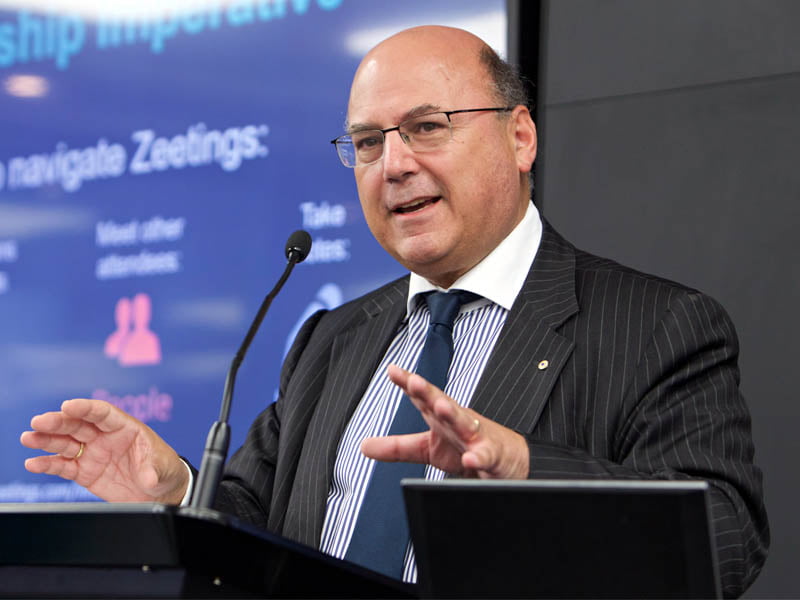Australia’s continued fall in global innovation rankings should send “a chill through the bones” of the local tech and startup communities, according to shadow minister for the digital economy Ed Husic.
The Global Innovation Index 2017, released late last week, saw Australia slip a further four places to 23rd in the world, behind China, New Zealand, Hong Kong and Singapore.
The index, released by INSEAD, Cornell University and the World Intellectual Property Organisation, collates 81 indicators in 127 countries to rank them in terms of innovation inputs and outputs.

Australia scored a total of 51.8 out of 100, placing it 23rd in the world.
Despite the fall in rankings, Industry Minister Arthur Sinodinos has cautioned against a rush to judgement, saying the positive effects of the government’s National Innovation and Science Agenda are yet to be reflected in the survey.
It’s the same old story for Australia. In terms of innovation input – infrastructure, human capital, market sophistication, education – Australia performs strongly and mostly in the top 10 worldwide.
But when things turn to outputs and commercialisation, Australia lags far behind, placing 30th overall.
In stark contrast, Australia placed 10th in terms of “knowledge workers” but 52nd for innovation linkages and 48th for knowledge absorption.
The continued fall in the global innovation race should worry for the local ecosystem and was an indictment on the government’s waning interest in the sector, Mr Husic said.
“Australia’s fall in global innovation rankings should send a chill through the bones of the nation’s startup communities. It does reinforce that belief that the Turnbull Government has put its innovation effort on ice,” Mr Husic told InnovationAus.com.
“Giving innovation a central, national focus is extraordinarily important – it makes it so much easier to mobilise people and capital to support the effort,” he said.
“It’s stunning that in the space of a few years we’ve gone from seeing the Turnbull Government give innovation and startups a warm embrace to now giving them a cold shoulder.”
But innovation minister Arthur Sinodinos was more upbeat, and said the rankings did not yet reflect the impact of government’s centrepiece NISA policies.
“The results from this year’s Innovation Index reflect why it is so important Australia adopts an innovation mindset,” Mr Sinodinos told InnovationAus.com.
“Our recent strategies, including NISA, have now been implemented and we’re seeing positive responses from the ecosystem which should boost Australia’s ranking in future assessments.”
Mr Sinodinos said the shortfalls in Australia’s innovation performance were also identified by the government’s own report.
“Statistics have long told us that Australia’s innovation and science ecosystem performs very well in key areas,” he said.
“The ISA board’s review of our innovation, science and research system showed that as a nation we are good at coming up with clever ideas, but could be better at transforming them into tangible outcomes. The government is committed to addressing those gaps in our innovation ecosystem.”
The message from StartupAUS is that the new report should be “taken with a grain of salt”.
A number of the factors measured by the index, including the number of Wikipedia edits, do not directly relate to a country’s startup ecosystem, and too much concern should not be placed on where Australia ultimately falls in the rankings, StartupAUS’ Alex Gruszka said.
“Switzerland has finished in the top spot for seven years in a row, but I don’t think anyone in Silicon Valley is coveting the Swiss innovation system,” Mr Gruszka told InnovationAus.com.
“It measures a lot of different factors that are not analogous to our startup sector,”
But the report does reinforce the areas where Australia’s innovation sector traditionally lags the rest of the world, and where improvements need to be made to make it more internationally competitive, Mr Gruszka said.
“It does paint a familiar picture. In general our inputs are really, really strong, but our outputs are work. The overall picture is the same,” he said.
There is no silver bullet for rectifying this situation, but a concerted bipartisan effort is needed to provide stability for the sector, he said.
“I would like to see a Minister stick around for a long period of time. It’s always tough when you have changing political personnel, and they take a while to get up to speed and might have a different agenda. We’d love to see some stability and renewed focus on making Australia a startup nation,” Mr Gruszka said.
This is something that Mr Husic can agree with.
“We need to be talking about and acting on ways to make innovation a key part of the public debate, making decisions to support that talk and ensuring we do what we can to build the jobs and businesses of the future,” Mr Husic said.
According to the index, Australia also performs strongly in terms of education, the ease of obtaining credit, ease of starting a business and intensity of local competition.
Switzerland again took out top spot in the rankings, followed by Sweden, Netherlands, the US and the UK. Australia only narrowly beat out the Czech Republic and Estonia in terms of innovation.
Do you know more? Contact James Riley via Email.

